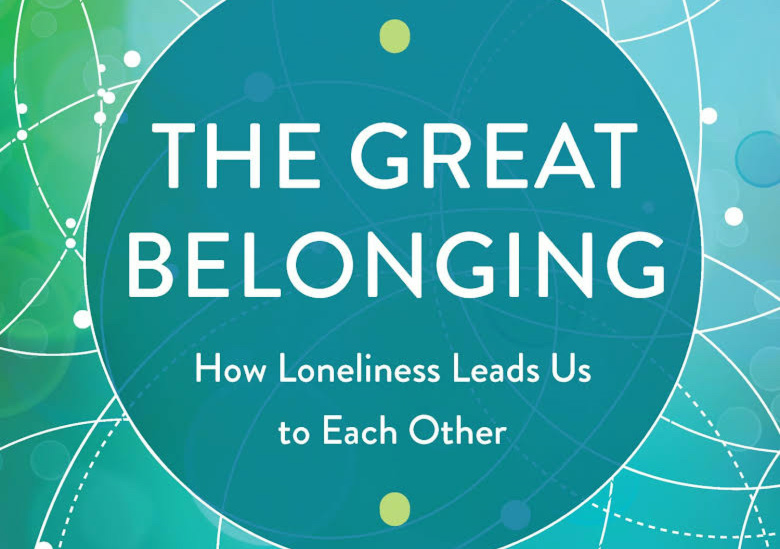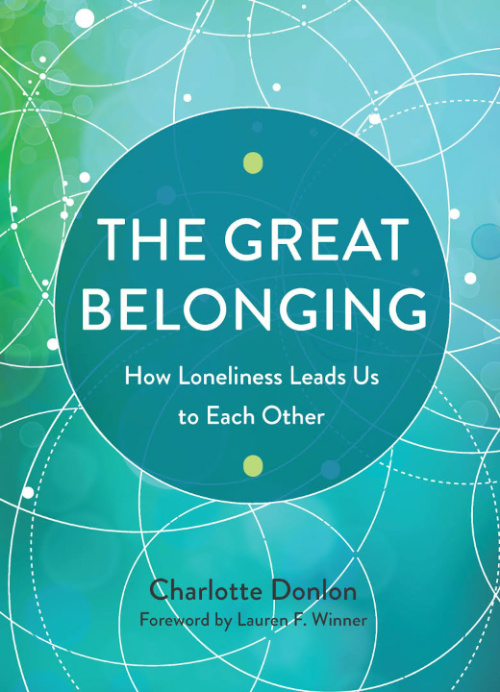
JO KADLECEK reads Charlotte Donlon’s memoir book, ‘The Great Belonging’…
Charlotte Donlon
The Great Belonging: How Loneliness Leads Us to Each Other
Broadleaf Books, US, November 2020
ISBN-13: 978-1506461960

“Donlon’s memoir-ish book offers a thoughtful but anchored frankness that often goes missing in today’s first-person narratives. And while it sneaks close to the cliff of self-indulgence, it never, happily, jumps over. Instead, there’s a point to Donlon’s raw vulnerability: If she can navigate these challenges, we can too.”
Usually, if Lauren F Winner, author and associate professor of Christian spirituality at Duke University, writes the foreword to a new book, it’s worth paying attention to. In the case of Charlotte Donlon’s memoir, The Great Belonging: How Loneliness leads Us to Each Other, however, it would have been helpful for Winner to have included a warning: proceed with caution. Because this is not a book for the flimsy-hearted looking for easy formulas about Christian living.
Then again, maybe Winner’s mere association is notice enough that something provocative and deep will likely follow: “Donlon’s insistence on framing loneliness as something that might come to us all is helping me see more clearly that loneliness is not principally a feeling,” Winner writes. “Rather loneliness is a right response – an insightful response – to the ways intimacy and distance are insistently threaded together in all our lives.”
Such a comment also prepares readers that something will be required of them as Donlon wrestles with isolation, depression and the ‘stigma’ of mental health in Christian circles. Consequently, Donlon’s memoir-ish book offers a thoughtful but anchored frankness that often goes missing in today’s first-person narratives. And while it sneaks close to the cliff of self-indulgence, it never, happily, jumps over. Instead, there’s a point to Donlon’s raw vulnerability: If she can navigate these challenges, we can too.
Donlon, a writer, spiritual director and podcast host from Birmingham, Alabama, divides her book into five parts, each comprised of short (some only two pages), sometimes pithy-sometimes academic, essays and anecdotes. Mining her life in each, Donlon explores the many layers and nuances of the loneliness and belonging she’s experienced as a white Southern Christian writer, mother, wife and observer of life.
In part one, Belonging to Ourselves, she frames her approach: “If we believe we are children of God and united with Christ, then we trust that our other belongings, un-belonging and isolations are all wrapped up in a Great Belonging: this most significant belonging that exists because of the love, grace and mercy God lavishes on us.”
Getting there, though, means first recognising the loneliness. When Donlon does, she meditates on a psalm, participates in the liturgy, sees a therapist or connects with others. Her trademark honesty (which her Twitter followers know) about her mental health challenges – manic episodes, depression, bi-polar – reduce the stigma and invite necessary conversations. Likewise, she doesn’t shy away from staying in the loneliness – “what if there is something in it?” – rather than trying to escape discomfort and difficulties, recognizing loneliness can be as instructive, as Flannery O’Connor once said, as illness.
“What would happen if we had a curious posture in the midst of hard things? When we sit with it, sometimes it can teach us other lessons: about our fear of rejection, of needing to sit and slow down and encourage us to reach out to someone. Sometimes it invites us to grieve the loss of a relationship or the loss of what I hoped a relationship might one day become,” she writes.
From sections about belonging to each other, and to places, Donlon next takes readers into part four, Belonging through Art. This section alone is worth the book as she reminds us of the power of music and memories, photographs and poetry, and how each artistic effort invites a practice of divine seeing and hearing and awe at the gift of creative ventures.
“Poets see more clearly the spaces that terrify us and they are more equipped (or perhaps just more willing) to enter those spaces…Their poems give us language for the haunting elements of unbelonging that we are unable to put words around on our own. Their poems open us to truths we would rather turn away from, to truths we wish were false.”
Ever the spiritual director, Donlon ends her book (in part five, Belonging to God) guiding readers (with plenty of reflection questions, meditations, and references) through the journey of loneliness toward belonging, noting its messy but natural path this side of Heaven is marked, thankfully, by the Incarnation. Never are we truly alone. Never do we not belong, if we embrace a “a common desire for the everlasting goodness, peace, and rest we know is coming.”





